The article contains spoilers from ASOIAF, including a sample chapter of The Winds of Winter.
Is he a ham?
Stannis Baratheon was the head of the currently extinct House Baratheon, and a claimant to the Iron Throne. He’s also one of the most interesting characters in both the A Song of Ice and Fire series and the TV adaptation, and a favorite among the fans (cue the variety of memes, from “Stannis the Mannis” to “Stan the Man” and…you get the idea. He’s a badass).
But this reputation of being a tough commander didn’t originate out of nowhere. It started with episode 9 from Season 2 (“Blackwater”).
Historically, kings, generals, commanders and such would rarely put themselves in harm’s way. Some of them did fight and die in battle, but that wasn’t always the case.
Book!Stannis didn’t personally fight. Having the possibility of a defeat in mind, he stayed far enough from the battle in case things went south and he had to retreat. The show version had him leading the charge, storming the castle, climbing stairs and lopping some heads with his sword.
It makes sense to make this justaposition in a visual medium. Stannis wasn’t presented as a particularly charming character, but as someone who would agree to use blood magic to murder his own brother. So, unlike the cowardly Joffrey who looked for any excuse to flee to safety, Stannis was turned into a brave warrior who was willing to get his hands dirty to get what he wanted.
This was a contribution from director Neil Marshall, who noted that Stannis disappeared from the script, and decided to go the whole nine yards with the character. Showing him being dragged from the battle while shouting “Stand and fight, you cowards!” makes for a more powerful image than him watching from the safety of his ship.
For an audience, it’s easier to root for a character who gets into the thick of the battle. Because we see him/her as a true leader, not someone who just gives orders and sends others to do the job for him.
We saw a similar contrast again during Episode 9 of Season 6 (“Battle of the Bastards”), when Jon was the first to charge against Ramsay Bolton’s army, but Ramsay remained behind his men and fled the battlefield afterwards, when the knights of the Vale arrived and obliterated his army.
Will your men want to fight for you when they hear you wouldn’t fight for them?
It’s, of course, a very romanticized thing, but that’s the beauty of fiction. Watching two generals sitting on their horses while a bunch of anonymous soldiers battle each other would make for very dull television. Even if we know the hero will likely make it out alive, we want him to do heroic deeds, no matter how “senseless” they may seem.
Does it make sense for the recently named King in the North to go beyond the Wall and risk his life to capture a wight? Couldn’t he send someone else and stay in Winterfell? Yes, absolutely, but where’s the fun in that?
But I’m straying a bit from the main topic. Going back to Stannis, I’d say that despite his flaws, some of which could take him to straight-up villain territory, he had many qualities for which men like Davos admired and followed him. And as readers and watchers, we could empathize with him somewhat, for all the times he gave his all and received the contempt of his siblings in return, Robert in particular.
After holding Storm’s End for over a year, which was being besieged by Tyrell forces, and reduced to eating rats, Stannis received Dragonstone as a reward, something he perceived as an intentional slight, since Dragonstone was a cold and grim castle in a place where nothing grows. Storm’s End was given to Renly instead.
Something that wasn’t mentioned in the show, was how during Stannis’ wedding, Robert used the wedding bed to have sex with Delena Florent, Selyse’s cousin. That union resulted in Edric Storm, a bastard whose existence Stannis considered as yet another slight for evident reasons.
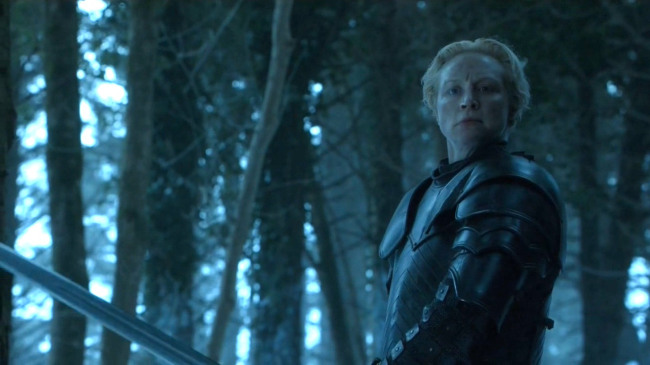
The final insult would come in the form of Renly’s claim to the Iron Throne. Renly knew his elder brother had the better claim, but decided to go ahead regardless. What Renly set in motion resulted in two of Stannis’ major defeats: the Tyrell alliance with the Lannisters breaking his army during the Battle of Blackwater Bay, and later (in the TV adaptation at least) when Brienne of Tarth (who used to be part of Renly’s kingsguard) executed him after the Boltons defeated him in the Battle of Winterfell.
In season 5’s penultimate episode “The Dance of Dragons” came a moment that remains a source of much controversy: Stannis sacrificed his daughter Shireen. Complaints of “character assassination” arose as a result. The scene was especially shocking for audiences because earlier in episode 4 (“Sons of the Harpy”) we had a moving moment in which Stannis displayed rare affection for his child.
Everyone advised me to send you to the ruins of Valyria to live out your short life with the stone men before the sickness spread through the castle. I told them all to go to hell. […] You are the Princess Shireen of House Baratheon. And you are my daughter.
For some fans, Shireen’s death didn’t come as a surprise, since it was heavily telegraphed in Season 4, during a scene in which Melisandre convinces Selyse to bring her daughter with them to the Wall, because the Lord of Light would be needing her. And when it comes to the Red Woman, the implication was obvious enough.
There was another piece of dialogue from the books that didn’t make it to the screen adaptation, and I feel it could’ve been crucial to understand Stannis’ motives. I’m talking about the story of Proudwing.
When Stannis was a boy, he found an injured goshawk and nursed her back to health. The bird recovered, and he named it Proudwing. She would only flutter, though, not being able to fly to high altitudes anymore. Robert made fun of his brother’s bird, calling her “Weakwing”.
A day came in which Stannis’ great-uncle, Ser Harbert, convinced him to stop making a fool of himself and just get a new bird.
The moment is intended to work as an analogy in which Davos is Proudwing, and Melisandre is the new (red) hawk. Stannis is saying that he would waste no more time with someone who’s not getting him the results he wants. But more than that, it’s a display of his pragmatic, ruthless behavior. He won’t let his feelings or emotional attachments to stand in the way of his ambitions, and that is what ultimately doomed him and his family.
He was never the kind of man who would pack up camp and wait for another opportunity. The Iron Throne was his ultimate goal, something he considered to be his by right, and he was willing to risk everything in order to destroy his competition and sit on it.
D&D said in the “Inside the Episode” feature that George R.R. Martin himself revealed to them that Shireen is going be sacrificed in the books as well. How it’ll happen, we don’t know yet, but it’s safe to say it’ll play in a different way, considering the timelines and the current locations of the characters:
In a sample chapter from The Winds of Winter, we see Stannis preparing for war against the Boltons. Martin’s editor, Anne Groell, confirmed that the battle is already written (though like with every work in progress, it’s still subject to changes), but was pushed from A Dance with Dragons, allegedly because the book would’ve been excessively long otherwise, and therefore impossible to bind.
However, in ADWD, we are told how Jon Snow receives a letter from Ramsay Bolton (the “Pink Letter”, which would become the “Come and see” letter in the TV show), which states that Stannis was defeated in the field of battle, and his army was “smashed”.
Ramsay says he has Stannis’ sword, Lightbringer, a weapon that belonged to Azor Ahai, a legendary hero. It is generally accepted that the sword is not really the one from the legend, and that Melisandre’s magic (or “glamour”) is what makes it glow and look “magical”. That may be the reason it remained a common steel sword in the adaptation.
Now, we know Ramsay wasn’t bluffing in the show. He did have Rickon and poor Shaggydog’s pelt. And he most likely won the battle against Stannis in the books, because he wouldn’t have been able to write the letter otherwise (and what’s the point of writing a threatening letter before a battle he could’ve lost?). I’d be really surprised if Ramsay’s letter turns out to be a lie.
It is possible Stannis himself survived the slaughter, as it happened in the adaptation (before he stumbled upon Brienne of Tarth) and Ramsay is just assuming he was killed with the rest of his army. He could return to the Wall, and maybe as a last-ditch effort to score a win against the Boltons, agree to burn Shireen. Davos is away looking for Rickon, so he won’t be around to prevent it from happening.
But Jon’s death complicates this theory. Stannis would arrive to a Castle Black under control of the mutineers, and it is unlikely he’d be too fond of people who betrayed their lord commander. That is, unless he arrives after Jon is brought back to life, but I don’t think Jon would stand by and watch them burn Shireen alive. The question of how Jon will be revived is yet another matter entirely. That Melisandre will be the one who revives him seems like a safe bet. Will she do it of her own volition? After all, as pointed out before, Davos isn’t a part of the equation.
I’m personally not a fan of the “Jon warging into Ghost” theory, despite the Varamyr prologue being presented as evidence, and that unlike the TV version of the story, Jon is a warg in the books. As of this moment, only Martin knows how things will develop.
The question remains: Would Stannis have been a good king? I like the character, but I feel like he wouldn’t have been a good ruler. He seemed to be utterly unable to cut deals or compromise, always dealing in absolutes and holding grudges. As he said during a council meeting: “They’ll bend the knee or I’ll destroy them”. Had he tried to make alliances (as Davos suggested) instead of trying to fight alone against the world, maybe things would’ve turned out differently for him.
He was rather harsh, and even his most trusted advisors and family members would get tough love from him, at best. Davos himself was almost sent to the chopping block.
Willing to sacrifice anything or anyone in order to reach his goals, he probably wouldn’t get much trust or support from other noble houses, and it is likely there’d be a rebellion in no time to overthrow him.
That’s not to mention his religion. Even if we assume that he only accepted R’hllor because of his alliance with Melisandre, and remains an atheist at heart, most (if not all) of the people of Westeros wouldn’t accept a foreign religion to take over the Seven or the Old Gods. If said religion isn’t forcefully imposed, Stannis could be perceived as a puppet of the red priests anyway. It’d be a recipe for disaster.
Though the future of the book character is currently unclear, I trust George will give him the send off he deserves. I have to admit that at first I wasn’t a big fan of his off-screen demise in the show, but eventually I came to the conclusion that I didn’t need to his head rolling for it to be satisfying.
What the showrunners and director David Nutter did was indeed the right call to make, in my opinion. It would’ve been a disservice to the character to end his run with a gory visual. Having him say “Go on, do your duty” and accepting his fate is now one of the best moments from the show for me.
And boy, do I miss Stephen Dillane.
Stannis doesn’t have a POV in the books, but the actor took what could’ve been a one-note, cold, joyless character (or worse, a hammy one) and turned him into someone way more complex, with a lot of personality despite never being one of the most expressive or jolly types. And even if he didn’t mean to be funny, his grammar corrections remain among the most amusing character interactions in the show’s entire run.
Not a ham, indeed.
The post From The Maester’s Desk: Born Amidst Salt and Smoke appeared first on Watchers on the Wall.
Via http://watchersonthewall.com
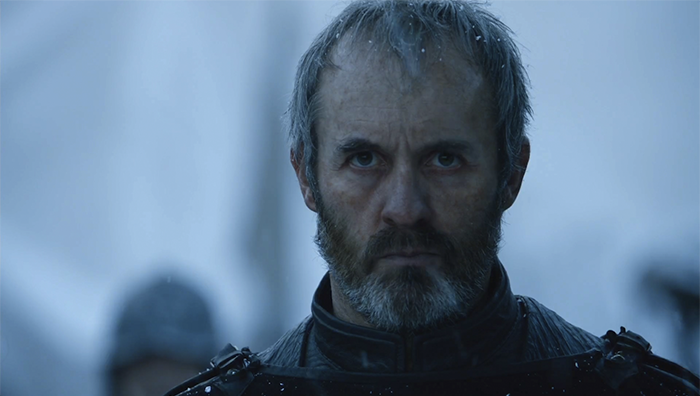
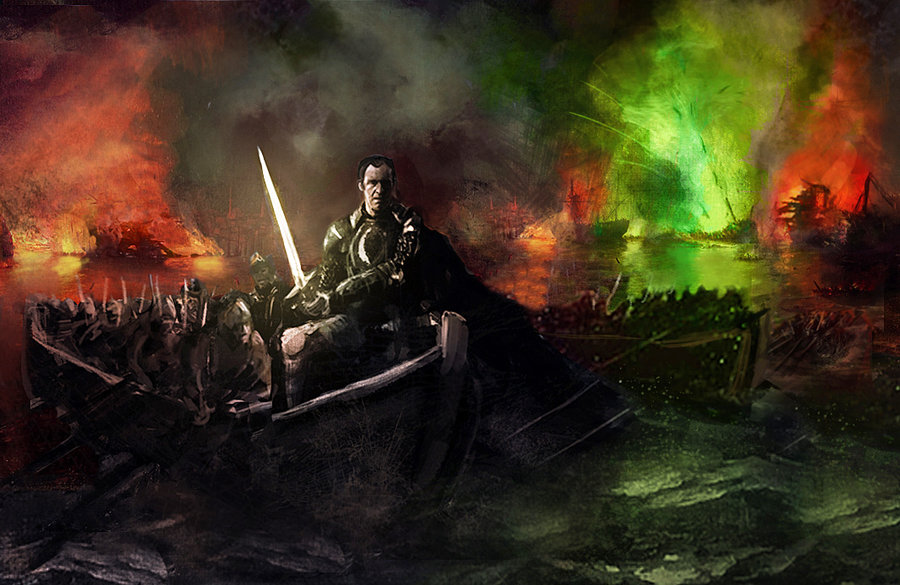
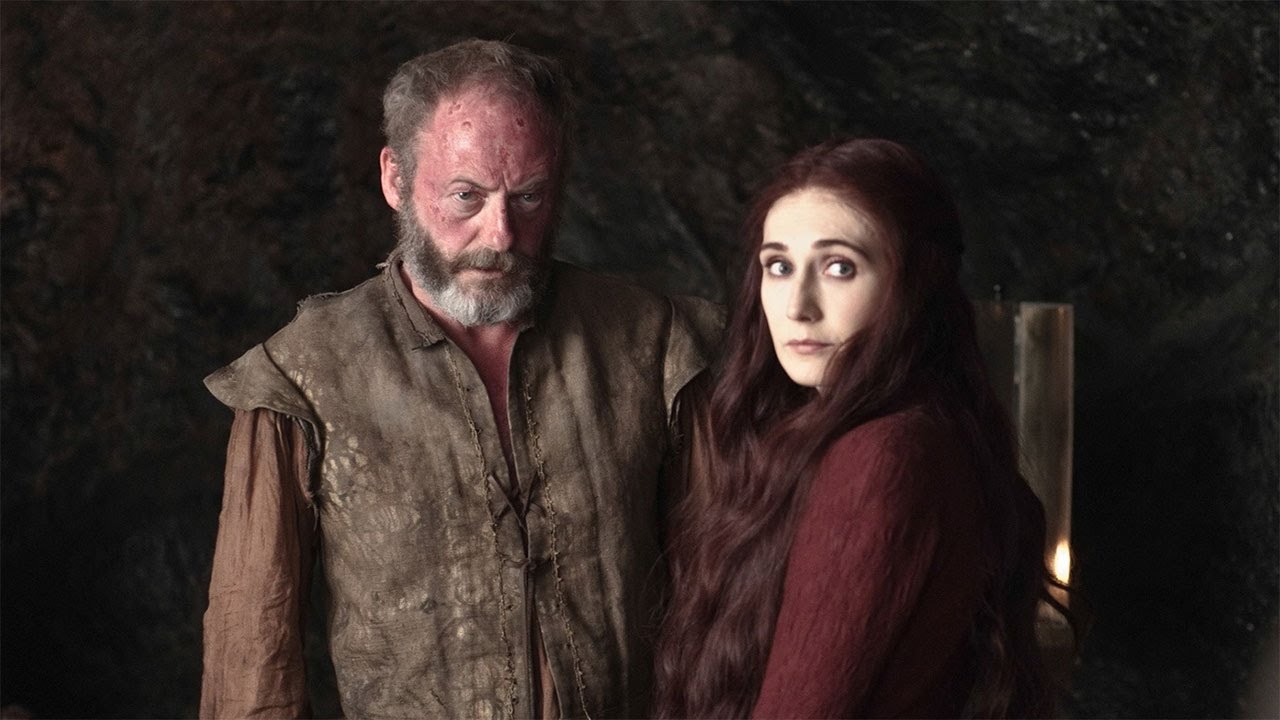
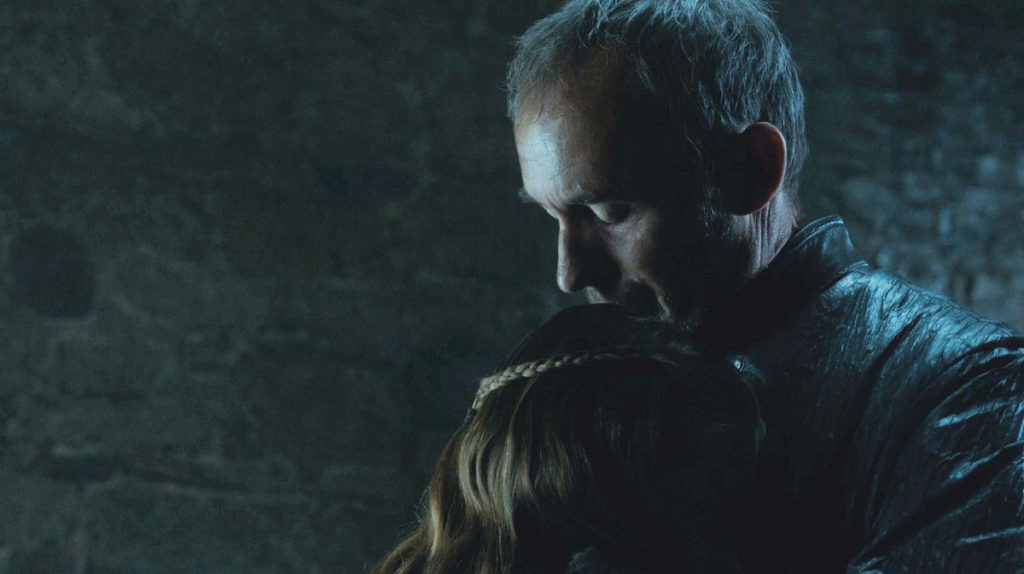
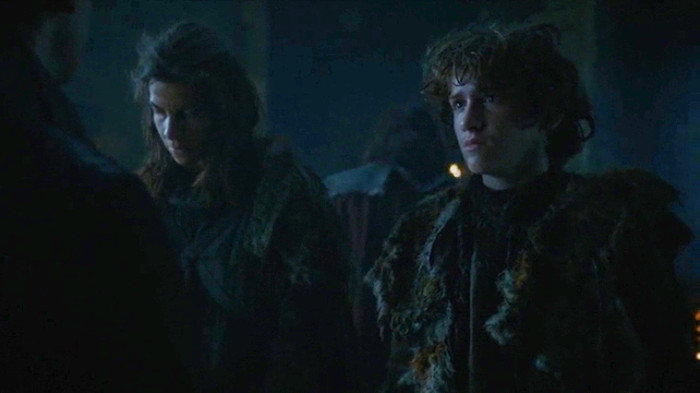
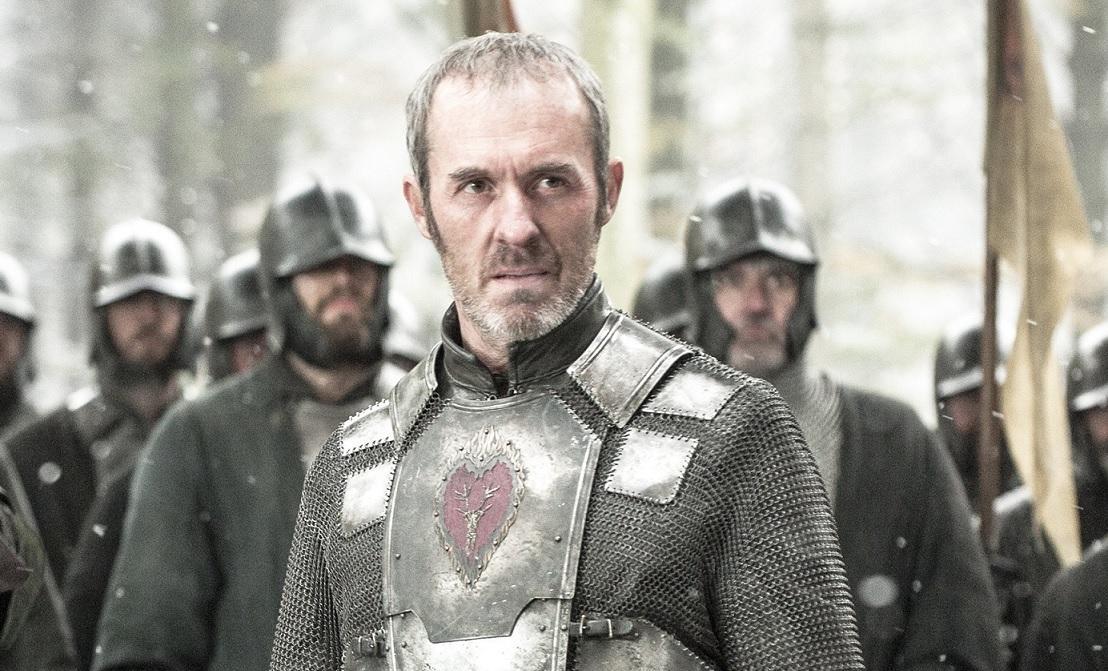
No comments:
Post a Comment